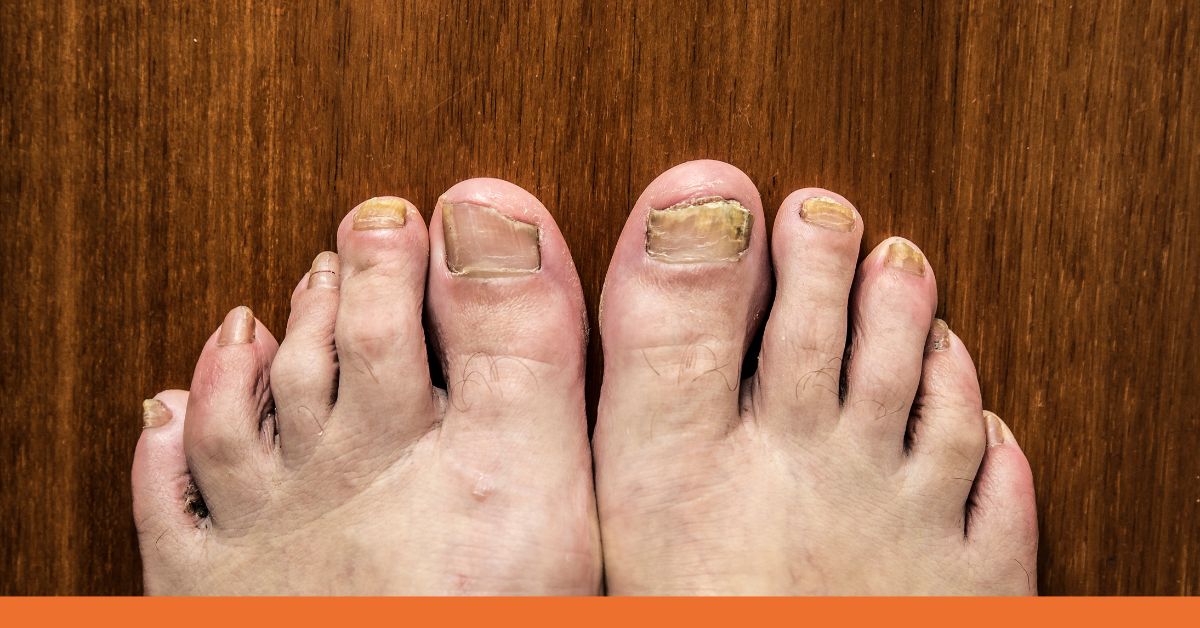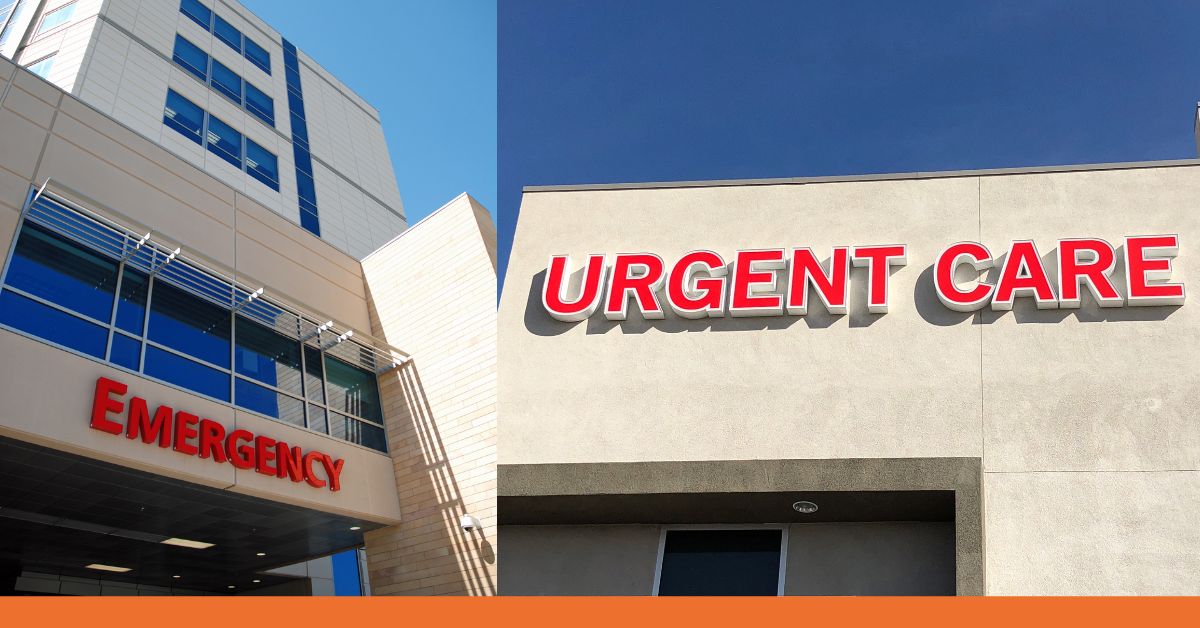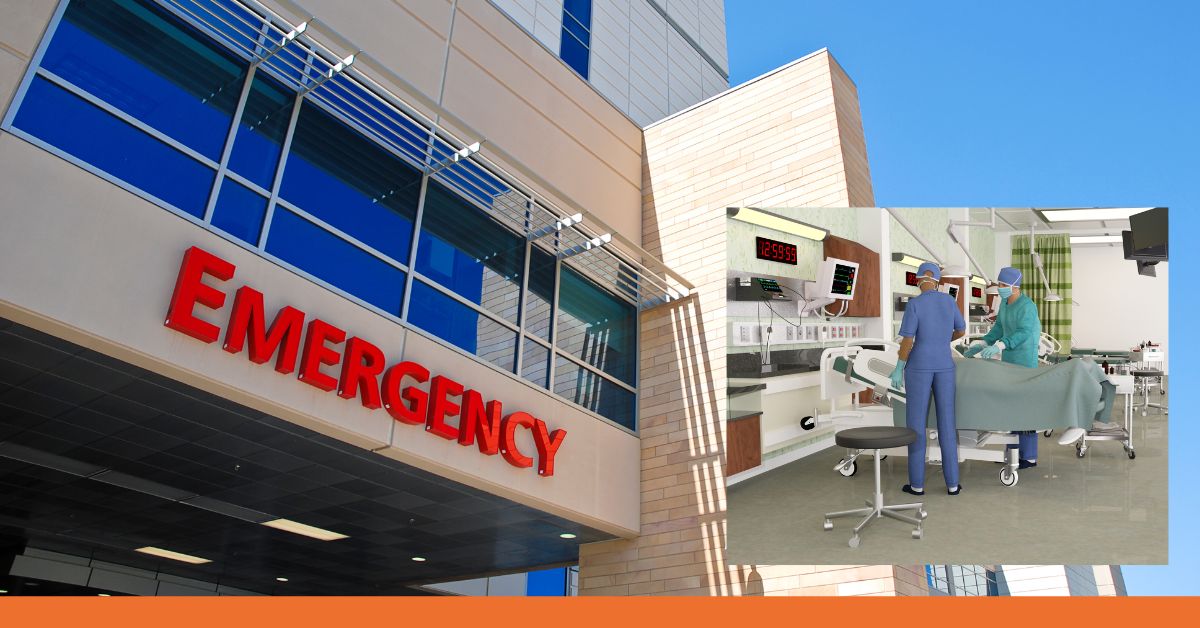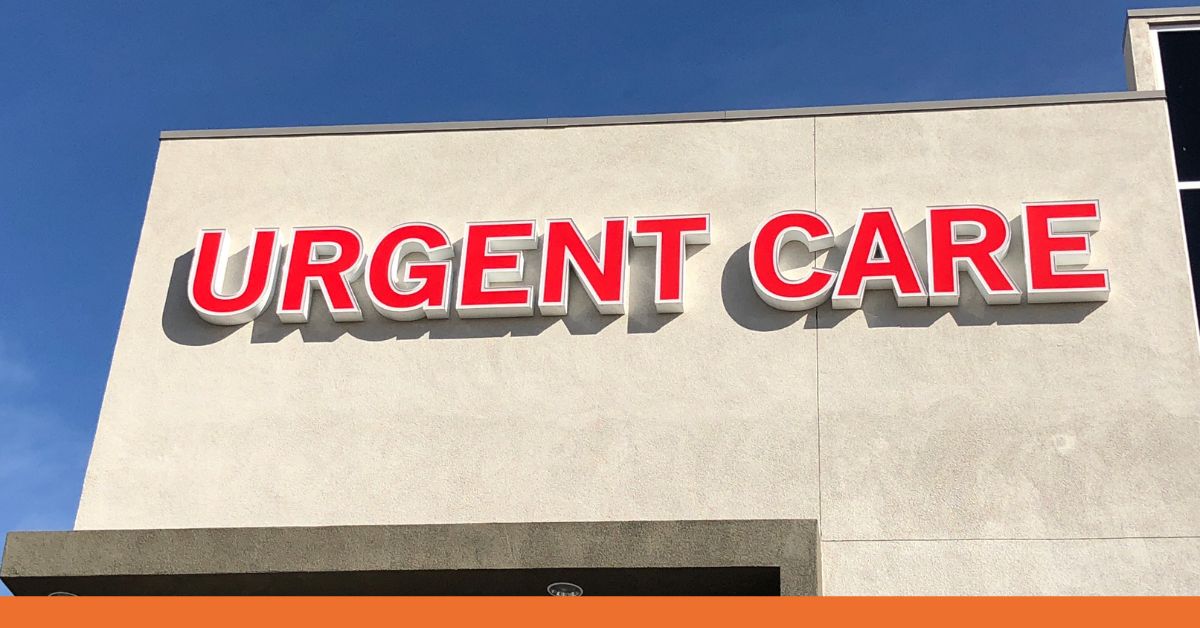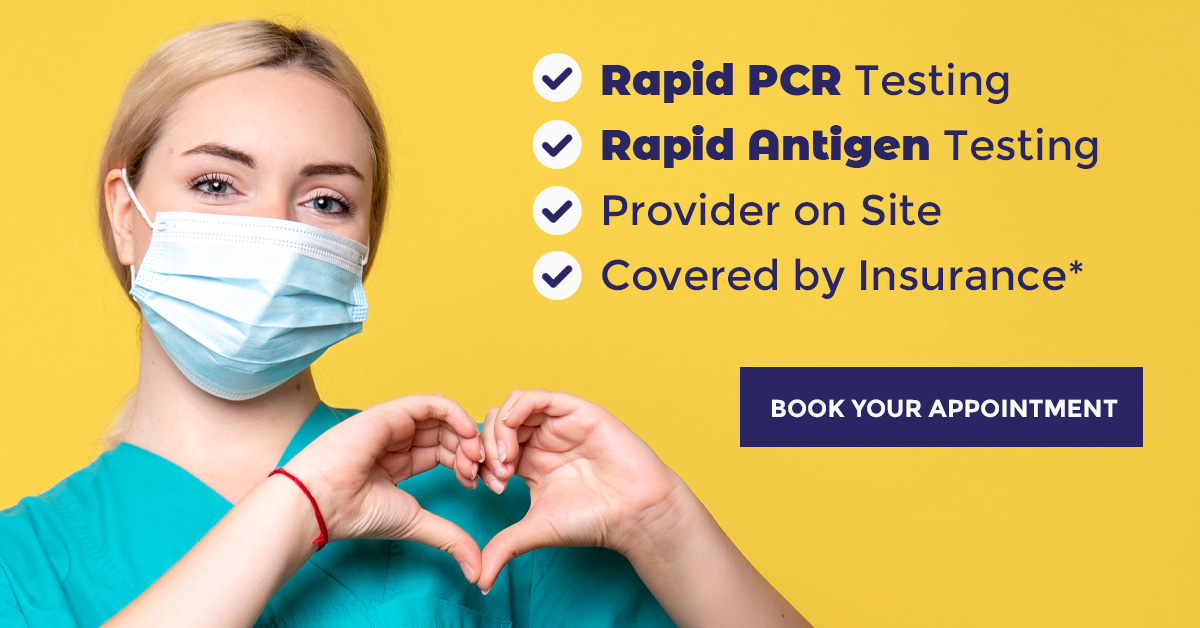
4 Best Sleeping Positions for Sinusitis Relief: Insights from Urgent Care in Stamford, CT
In 2018, 28.9 million adults or 11.6% of the adult population, were diagnosed with sinusitis. This condition, commonly known as a sinus infection, can make one’s life miserable. Symptoms like nasal congestion, facial pain, and headaches can significantly disrupt daily activities and sleep. However, not a lot of people know that proper sleeping positions can provide much-needed relief for their sinusitis. Let’s explore the best sleeping positions for sinusitis relief, as suggested by the medical experts at urgent care in Stamford, CT.
Table of Contents
Key Takeaways✔ Sinusitis is the inflammation of the sinus tissue, leading to symptoms like nasal congestion, facial pain, and headaches. ✔ Sinusitis can be acute, subacute, chronic, or recurrent, depending on the duration and frequency of symptoms. ✔ Sleeping flat increases sinus pressure. Elevate your upper body to promote sinus drainage. ✔ Elevating your head with extra pillows helps reduce sinus congestion by keeping your head above your heart. ✔ Side sleeping can worsen sinus congestion. Instead, sleep on your back with your head elevated. ✔ Sleeping in a recliner can be beneficial for sinusitis relief by keeping you upright and reducing congestion. ✔ Maintain a clean sleep environment, use a humidifier, stay hydrated, and consider over-the-counter medications for relief. ✔ Visit urgent care in Stamford, CT, if you experience high fever, severe headache, persistent symptoms, vision problems, or other severe signs. |
What is Sinusitis?
Sinusitis is the inflammation or swelling of the tissue lining the sinuses. Healthy sinuses are filled with air, but when they become blocked and filled with fluid, germs can grow and cause an infection. This blockage often results from the common cold, allergic rhinitis, nasal polyps, or a deviated septum.
Symptoms of sinusitis include thick nasal mucus, a plugged nose, and pain in the face. It can also cause a cough, fever, and bad breath.
Sinusitis can be classified into several types based on the duration of the symptoms. Understanding these types helps in determining the best approach for treatment and management. The tips provided by urgent care in Stamford, CT can aid in alleviating symptoms regardless of the type of sinusitis you are experiencing.
- Acute Sinusitis: Lasts up to four weeks and usually starts with cold-like symptoms such as a runny, stuffy nose and facial pain. Acute sinusitis can be caused by viral or bacterial infections.
- Subacute Sinusitis: Symptoms last for 4 to 12 weeks. This type can develop if acute sinusitis is not properly treated.
- Chronic Sinusitis: Symptoms persist for 12 weeks or longer, and can be caused by long-term inflammation, infections, or structural issues in the sinuses.
- Recurrent Sinusitis: Multiple episodes of acute sinusitis within a year.

4 Best Sleeping Positions for Sinusitis Relief
Finding the right sleeping position can make a significant difference in managing sinusitis symptoms and ensuring a restful night’s sleep. Here are four of the best sleeping positions for sinusitis relief, as recommended by the experts at urgent care in Stamford, CT.
1. Avoid Laying Flat
Sleeping flat on your back can exacerbate sinusitis symptoms. To prevent this, elevate your upper body slightly. This position allows gravity to assist in draining your sinuses, reducing congestion and making breathing easier. The experts at urgent care in Stamford, CT, recommend this simple adjustment to improve your quality of sleep and overall comfort.
Tips for Avoiding Laying Flat
- Use a Wedge Pillow: A wedge pillow is specifically designed to elevate your upper body. It provides a gradual incline, which is more comfortable and effective than stacking regular pillows.
- Adjust Your Bed: If possible, consider adjusting your bed to an inclined position. Some beds come with adjustable bases that allow you to elevate the head of the bed.
- Practice Good Posture: Maintaining good posture during the day can support better sleeping positions at night. Avoid slouching and keep your back straight when sitting.
Why Laying Flat is Problematic
When you lie flat, especially on your back, gravity causes blood to pool in your sinuses. This can lead to increased pressure and discomfort, making it harder for you to breathe through your nose. Additionally, mucus can accumulate in your nasal passages, leading to further congestion and pain. This position can also cause your throat to become dry, which may exacerbate coughing and throat irritation, common symptoms of sinusitis.
2. Use Extra Pillows
Elevating your head with extra pillows is one of the most effective ways to alleviate sinusitis symptoms. Keeping your head above your heart allows your sinuses to drain more effectively, reducing congestion and pressure.
How to Use Extra Pillows Effectively
- Arrange Two or Three Pillows: Stack two or three pillows to create a comfortable incline. Make sure the pillows are arranged in a way that provides support to both your head and neck.
- Ensure Neck Support: It is essential to maintain proper neck alignment to avoid stiffness and pain. Use a cervical pillow or a rolled-up towel to support the natural curve of your neck.
- Consider a Body Pillow: A body pillow can provide additional support and help you maintain a comfortable position throughout the night.
Benefits of Elevating Your Head
Elevating your head while sleeping can help reduce sinus pressure and improve breathing. This position prevents mucus from pooling in your sinuses, which can lead to congestion and discomfort. Additionally, it can help reduce snoring and improve the quality of your sleep. The medical experts at urgent care in Stamford, CT, emphasize the importance of this simple adjustment for those suffering from sinusitis.
3. Don’t Sleep on Your Side
While side sleeping is a common and comfortable position for many, it can worsen sinus congestion.
Alternatives to Side Sleeping
- Use a Contoured Pillow for Neck Alignment: A contoured pillow can help keep your neck aligned, and your airways open, reducing sinus pressure while sleeping on your back.
- Use Pillows to Support Your Back: Place pillows on either side of your body to prevent you from rolling onto your side during the night.
- Switch Sides Periodically: If side sleeping is unavoidable, switch sides periodically to prevent prolonged congestion on one side.
Why Side Sleeping Can Be Problematic
When you sleep on your side, gravity causes mucus to pool in the sinus on the side you’re lying on. Additionally, side sleeping can cause pressure on your sinuses, exacerbating pain and swelling. By avoiding this position or making adjustments, you can promote better sinus drainage and reduce symptoms. The experts at urgent care in Stamford, CT recommend these adjustments to help alleviate sinusitis symptoms and improve your quality of sleep.
4. Try Sleeping in a Recliner
Sleeping in a recliner might not be as cozy as your bed, but it can be highly beneficial for sinusitis sufferers.
Benefits of Sleeping in a Recliner
- Promotes Better Sinus Drainage: Staying upright allows gravity to assist in draining your sinuses, reducing congestion and making breathing easier.
- Reduces the Likelihood of Waking Up with a Stuffy Nose or Headache: By keeping your head elevated, you can prevent mucus from pooling in your sinuses.
- Provides a Stable and Comfortable Sleeping Position: Recliners offer a stable and comfortable position for those struggling with sinusitis.
Tips for Making a Recliner More Comfortable
- Use a Small Pillow to Support Your Neck and Head: A small pillow can provide additional support and help you maintain a comfortable position.
- Keep a Blanket Nearby: Staying warm and cozy can improve your comfort while sleeping in a recliner.
- Adjust the Recliner to Find the Most Comfortable Angle: Experiment with different angles to find the position that offers the most relief.

Additional Tips for Sinusitis Relief
In addition to adopting the best sleeping positions, there are several other strategies you can use to alleviate sinusitis symptoms and improve your quality of life.
Maintain a Clean and Allergen-Free Sleep Environment
- Keep Your Bedroom Clean: Regularly dust and vacuum your bedroom to reduce allergens such as dust mites and pet dander.
- Wash Bedding Regularly: Wash your sheets, pillowcases, and blankets in hot water at least once a week to eliminate dust mites and other allergens.
- Use Hypoallergenic Pillow Cases and Mattress Covers: These products can help reduce exposure to allergens and improve your sleep quality.
Use a Humidifier
- Add Moisture to the Air: A humidifier adds moisture to the air, preventing your nasal passages from drying out and reducing congestion.
- Aim for a Humidity Level of 30-50%: The Environmental Protection Agency recommends maintaining indoor relative humidity between 30% and 50%, and it should never exceed 60%. This humidity level can help keep your nasal passages moist and reduce sinusitis symptoms.
- Clean the Humidifier Regularly: Regular cleaning prevents mold and bacteria growth, ensuring the air you breathe is clean and healthy.
Stay Hydrated
- Drink Plenty of Water: Staying hydrated helps thin mucus and promotes drainage, reducing congestion and pressure in your sinuses.
- Avoid Caffeinated and Alcoholic Beverages: These beverages can dehydrate you, exacerbating sinusitis symptoms.
Take Over-the-Counter Medications or Nasal Sprays
- Decongestants: These medications can reduce swelling in the nasal passages and improve breathing.
- Saline Nasal Sprays: Saline sprays can help rinse away allergens and irritants, reducing inflammation and promoting sinus drainage.
- Follow Instructions and Consult a Healthcare Provider: Always follow the instructions on the medication and consult with a healthcare provider if you have any questions or concerns.
When to Seek Help from Urgent Care in Stamford, CT
While many cases of sinusitis can be managed at home, there are times when professional medical help is necessary. Knowing when to seek assistance from urgent care in Stamford, CT, can prevent complications and ensure you receive the appropriate treatment.
Severe Symptoms
High Fever
- A fever over 101.5°F may indicate a bacterial infection that requires antibiotics.
- If you have a high fever that does not improve with over-the-counter medications, seek medical help from urgent care in Stamford, CT.
Severe Headache
- If you experience an intense headache that does not improve with over-the-counter medications, seek medical help.
- Severe headaches can be a sign of a more serious condition that requires medical attention.
Persistent and Worsening Symptoms
Persistent Symptoms
- If your symptoms last more than 10 days without improvement, it’s time to see a doctor at urgent care in Stamford, CT.
- Persistent symptoms may indicate a chronic or severe sinus infection that requires medical treatment.
Worsening Symptoms Despite Treatment
- If your symptoms worsen despite home treatment, it may be time to seek medical help from urgent care in Stamford, CT.
- This can include increased pain, pressure, or congestion.
Neurological and Vision Issues
Vision Problems
- Blurred or double vision can be a sign of a serious sinus infection.
- If you experience any vision problems, seek medical help immediately at urgent care in Stamford, CT.
Confusion or Stiff Neck
- These symptoms may suggest an infection has spread beyond the sinuses and require immediate medical attention.
- If you experience confusion or a stiff neck, seek medical help immediately.
Facial and Eye Symptoms
Swelling Around the Eyes
- Swelling, redness, or pain around your eyes can indicate a severe infection.
- If you notice any of these symptoms, seek medical help from urgent care in Stamford, CT.
Facial Pain and Swelling
- Significant facial pain and swelling that does not improve with over-the-counter medications.
- These symptoms can indicate a more severe infection that requires medical intervention from urgent care in Stamford, CT.
Breathing and Nasal Issues
Difficulty Breathing
- Severe nasal congestion that makes it difficult to breathe.
- If you struggle to breathe due to sinus congestion, seek medical attention from urgent care in Stamford, CT, immediately.
Frequent Nosebleeds
- Frequent or severe nosebleeds can be a sign of underlying issues.
- If you experience frequent nosebleeds along with sinusitis symptoms, seek help from urgent care in Stamford, CT.

What Are the Services Provided by Urgent Care in Stamford, CT
Urgent care in Stamford, CT, offers a range of services to diagnose and treat sinusitis effectively. From prescribing medications to providing sinus drainage procedures, the medical professionals at urgent care are equipped to handle various sinus-related issues.
Diagnosis and Assessment
- Detailed Evaluation of Your Symptoms: The healthcare providers at urgent care in Stamford, CT, will conduct a thorough evaluation of your symptoms to determine the cause of your sinusitis.
- Diagnostic Tests: If necessary, diagnostic tests such as nasal endoscopy or imaging may be performed to assess the severity of your sinusitis and identify any underlying conditions.
Medical Treatments
- Prescription Medications: If your sinusitis is caused by a bacterial infection, antibiotics may be prescribed to eliminate the infection. Corticosteroids may also be prescribed to reduce inflammation and swelling.
- Decongestants and Antihistamines: These medications can help relieve congestion and allergy symptoms, improving your breathing and overall comfort.
Sinus Drainage Procedures
- Nasal Irrigation: Nasal irrigation can flush out mucus and allergens, reducing inflammation and promoting sinus drainage. This procedure can be performed at home using a saline solution and a nasal irrigation device.
- Balloon Sinuplasty: Balloon sinuplasty is a minimally invasive procedure that opens blocked sinuses and improves drainage. This procedure is typically performed by an ENT specialist and can provide long-term relief for chronic sinusitis sufferers.
- Sinus Surgery: In severe or chronic cases, sinus surgery may be necessary to remove blockages and improve sinus drainage. This procedure is typically performed by an ENT specialist and can provide long-term relief for chronic sinusitis sufferers.
Advice and Follow-Up Care
- Recommendations for Home Care and Prevention: The healthcare providers at urgent care in Stamford, CT, will provide recommendations for home care and prevention to help you manage your sinusitis and prevent future infections.
- Follow-Up Appointments: Follow-up appointments may be scheduled to monitor your progress and adjust your treatment plan as needed. This ensures that you receive the best possible care and achieve optimal results.

Frequently Asked Questions
What makes sinuses worse at night?
Sinuses can become worse at night due to a combination of factors. Lying flat can cause mucus to pool in the sinuses, increasing pressure and congestion. Additionally, dry indoor air and allergens can irritate the nasal passages, exacerbating symptoms. Environmental factors such as dust mites or pet dander in the bedroom can also contribute to worsening sinus problems at night.
How can I decongest my sinuses at night?
Decongesting your sinuses at night can be achieved through a few simple strategies. Elevate your head with extra pillows to help sinus drainage and reduce congestion. Using a humidifier can add moisture to the air, preventing your nasal passages from drying out. Staying hydrated by drinking plenty of water and using saline nasal sprays or decongestants, as recommended by a healthcare provider, can also help keep your sinuses clear.
What drink is good for sinus infection?
Certain warm drinks can be particularly beneficial when dealing with a sinus infection. Herbal teas, such as chamomile or ginger tea, can help soothe the throat and reduce inflammation. Broths and soups provide warmth and hydration, which can thin mucus and promote better sinus drainage. Water with lemon and honey not only hydrates but also provides antioxidants and antibacterial properties that may help alleviate sinus symptoms.
Is fresh air good for sinus infection?
Yes, fresh air can be beneficial for sinus infections as it helps reduce indoor allergens and improve overall air quality. Ventilating your home by opening windows can decrease the concentration of dust and other irritants that may worsen sinus congestion. However, it is important to avoid exposure to outdoor pollutants and allergens, such as pollen, especially if they trigger your sinus symptoms. Balancing fresh air intake while minimizing allergen exposure is key to finding relief.
Do hot showers help sinus infections?
Yes, hot showers can provide temporary relief from sinus infections. The steam from a hot shower helps to open up nasal passages, making it easier to breathe and reducing congestion. This moist heat can also soothe irritated sinuses and alleviate sinus pressure and pain. Incorporating hot showers into your routine can be a simple yet effective way to manage sinus symptoms at home.

Get Professional Help for Sinusitis Relief Today!
If you’re struggling with sinusitis and need professional help, don’t hesitate to visit DOCS Urgent Care Stamford. Our experts at DOCS Urgent Care Stamford can provide personalized treatment and advice to help you manage your symptoms effectively. For comprehensive care and expert guidance, trust DOCS Urgent Care Stamford to help you feel better and breathe easier.
Contact us today!
Recent Posts
- Top 6 Home Remedies for Tick Bites and When to Seek Urgent Care in Norwalk, CT
- 4 Best Sleeping Positions for Sinusitis Relief: Insights from Urgent Care in Stamford, CT
- 10 Tips for Managing Nausea During Pregnancy: Advice from a Primary Care Doctor in West Hartford, CT
- 6 Essential Steps to Take After a Scorpion Sting – Advice from a Primary Care Doctor in Bridgeport, CT
- 10 Warning Signs That Your Child’s Vertigo Requires Medical Attention from a Primary Care Doctor in Danbury, CT
Categories







































